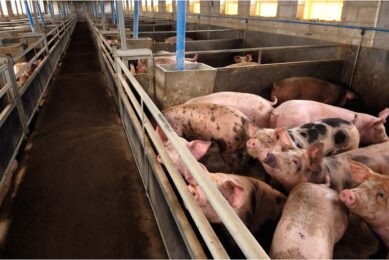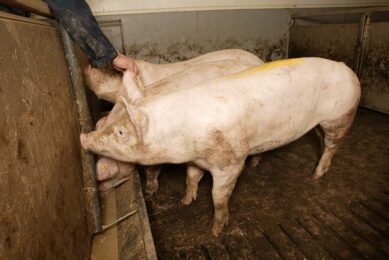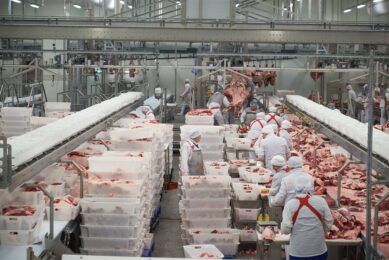Canada: Best practices for medicating pigs
A new video produced by Manitoba Pork Council demonstrates the use of both conventional and new needleless injection technologies for administering veterinary medications to swine.
Needleless injection offers a virtually pain free alternative to conventional methods for administering medication to livestock.
A new 17 minute video, shot at the University of Manitoba’s swine research facilities at the Glenlea Research Station and produced by Manitoba Pork Council, demonstrates the use of conventional needles and syringes and the new needleless injection technology.
Manitoba Pork Council quality assurance and labour programmes manager Miles Beaudin says needless injection offers a range of animal welfare and food safety benefits.
Needles in pork
“The purpose of video was to create a resource of best production practices for the use of conventional syringe and needle and that of the new technology, needleless injectors,” Beaudin tells Bruce Cochrane at Farmscape.
“To date there continues to be broken needles found within packing plants across Canada and I felt that Manitoba Pork Council needed to demonstrate leadership across Canada to address this issue.
“Not only does this video reinforce recommended best practices but this video also paves the way to demonstrate the new technology and will help producers further increase their animal welfare on the farm.
“Thirdly in Manitoba MAFRI, the Manitoba government has recently provided funding for subsidisation of needleless injectors to the amount of CAN$2,000 per gun for every farm in Manitoba that is on the food safety programme, the Canadian Quality Assurance Program.”
Beaudin says, because needleless injection is so new and because the subsidy programme has only recently been announced, adoption of the technology has been limited but he expects much more interest in the near future.
The new video is available through Manitoba Pork Council.
Study to evaluate easiness of use
Manitoba Pork Council expects a study planned for 2010 to provide the province’s pork producers greater insight into the value of needleless injection.
Researchers with the University of Manitoba will compare the ease of use of needleless injectors to conventional needles and syringes, their effect on animal performance and the effectiveness of the medications administered.
To make the project as professional as possible the project will be managed by University of Manitoba.
“We have chosen a site that has several thousand pigs on it at all times and this will allow for a very large sample size and ensure that the project gets the information it needs,” Beaudin says.
The study is expected to take about six months start to finish and once complete a research report will be circulated among the province’s pork producers and the information is expected to be presented during producer seminars.
Related websites:
• Manitoba Pork Council
• University of Manitoba©
Join 18,000+ subscribers
Subscribe to our newsletter to stay updated about all the need-to-know content in the pigsector, three times a week. Beheer
Beheer










 WP Admin
WP Admin  Bewerk bericht
Bewerk bericht